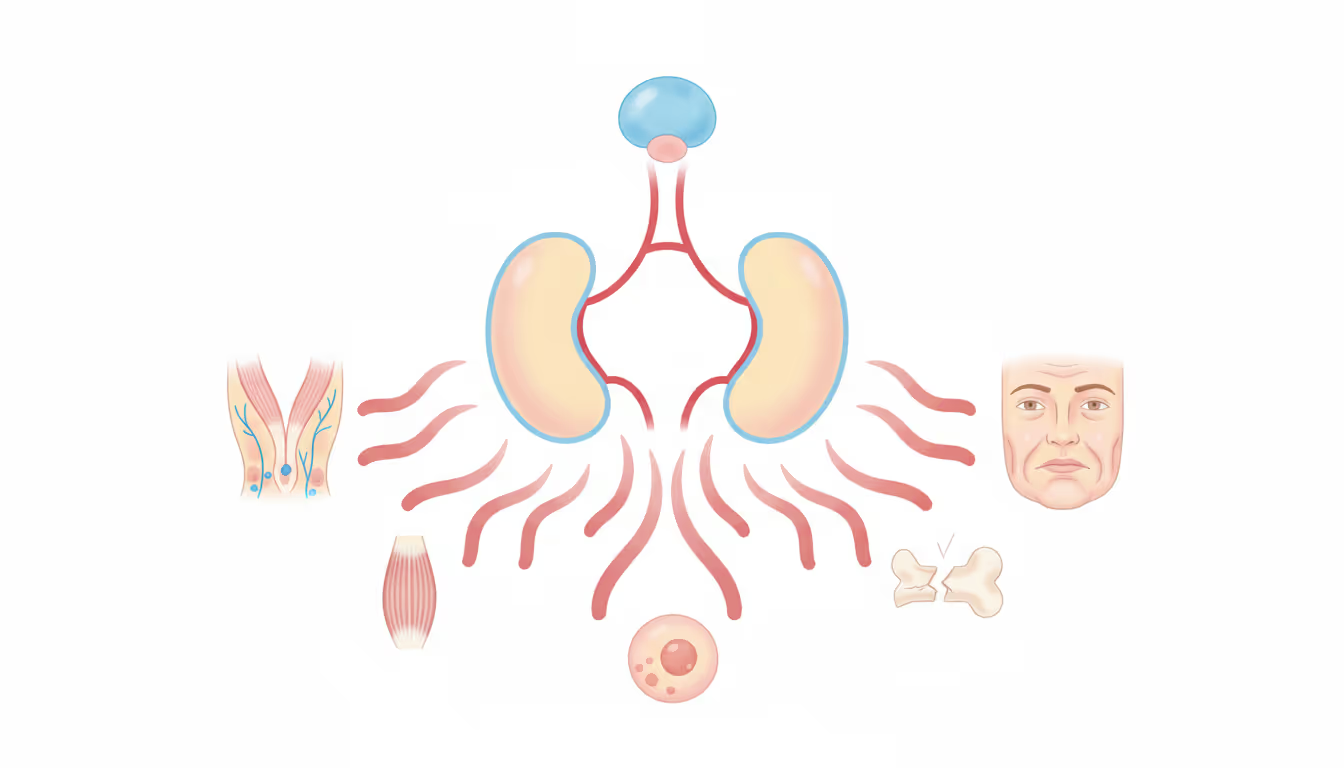
Hyperadrenocorticism, often referred to as Cushing's syndrome, is a highly intricate condition affecting various parts of the body due to an overproduction of a hormone known as cortisol. This excess of cortisol leads to symptoms such as skin thinning, muscle weakness, weight gain, easy bruising, fragile bones, facial swelling, and in women, the cessation of menstrual periods. A prevalent cause of Cushing's syndrome is the use of "cortisol-like medications" to manage different illnesses. Other instances of this syndrome arise from the body's own excessive cortisol production, which can occur due to: 1) abnormal growth in the pituitary gland that prompts the adrenal glands to produce more cortisol; 2) a tumor or abnormal growth within the adrenal gland itself leading to cortisol overproduction; and 3) hormone production elsewhere in the body that stimulates the adrenal glands to increase cortisol output. The syndrome was first described by neurosurgeon Harvey Cushing (1869-1939), who identified a specific type driven by an ACTH-secreting benign pituitary tumor that excessively stimulates the adrenal gland.




